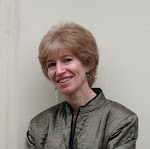Sometimes ignorance is, if not bliss, at least a state that makes it more likely you'll engage in that willing suspension of disbelief that is so crucial to immersion in someone else's imagination.
Last night I saw the movie Bright Star, which is set in the 1820s and based on the romance between John Keats and, literally, the girl next door, a young woman named Fanny Brawne. (I realize my previous blog post was also about a movie -- it's actually very unusual for me to see two movies in the space of a few days!) It's an engaging, terrifically romantic movie (fittingly, since it's about a Romantic poet). And what's more, the period details seem spot on and not prettied up. There's laundry hanging out to dry, lots of mud (I kept worrying about the hems of those lovely empire-style dresses), and the actors -- even the female ones -- seem to be wearing little or no make-up, which gives them an authentically scrubbed and slightly raw look. And, according to Caleb Crain in a recent issue of The New York Times Magazine, the screenwriter, Jane Campion, incorporated phrases and ideas from Keats's letters into the dialogue.
But right at the beginning, there's a detail that I, for one, found jarring. As Fanny Brawne and her family arrive at the house of some friends, there's a chorus of greetings: Hello, Hello, Hello. Over and over. What's the problem? The word "hello" didn't actually come into common usage as a greeting until much later in the 19th century -- not until Thomas Edison decided that "hello" would make a good word to use when picking up the phone (Alexander Graham Bell favored "ahoy"). Before that, it appears to have been something people said primarily to express surprise or to get someone's attention. If you wanted to greet someone in the early 19th century, you would probably have said "good morning" or some variation appropriate to the time of day.
It's true that Wikipedia suggests that "hullo" may have been used as a greeting in England, as opposed to the U.S., as early as 1803. But the point is that, for me, even thinking about whether these people would actually have said "hello" broke the spell that the movie was trying to cast. For a few moments at least, I was no longer in the front hall of a house in Hampstead in 1828; I was in a movie theater around the corner from my house, in November 2009.
And therein lies one of the dangers of historical movie-making -- or historical fiction. You always have to sweat the details, on the off chance that some viewer or reader will know more than you do. (And it's clear that Caleb Crain was distracted by a slightly different but related question, i.e., whether Keats really would have spoken the way he did in the movie.) That's one reason it was such a relief to work on a contemporary novel over the past few months: I could be quite confident that my period details were indisputably authentic.
But ultimately, last night, I forgot about all those "hellos," forgot the fact that I was in a movie theater, and gave myself over to the movie itself. And, knowing how difficult it is to get every nuance "right," I can't really bring myself to chastise Jane Campion for what appears to be an anachronism.
Actually, I just kind of wish I'd never heard that "hello" was a late 19th-century invention.
Subscribe to:
Post Comments (Atom)





No comments:
Post a Comment